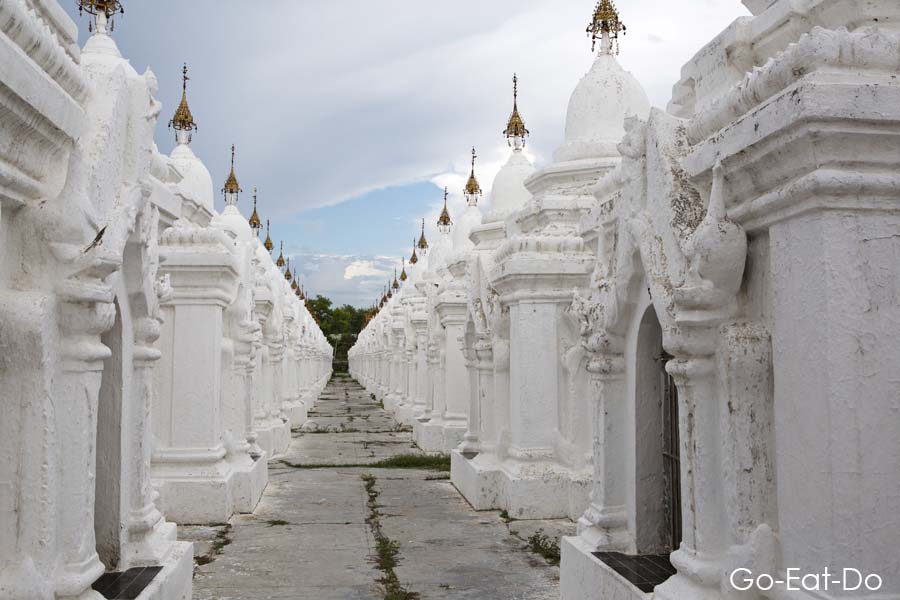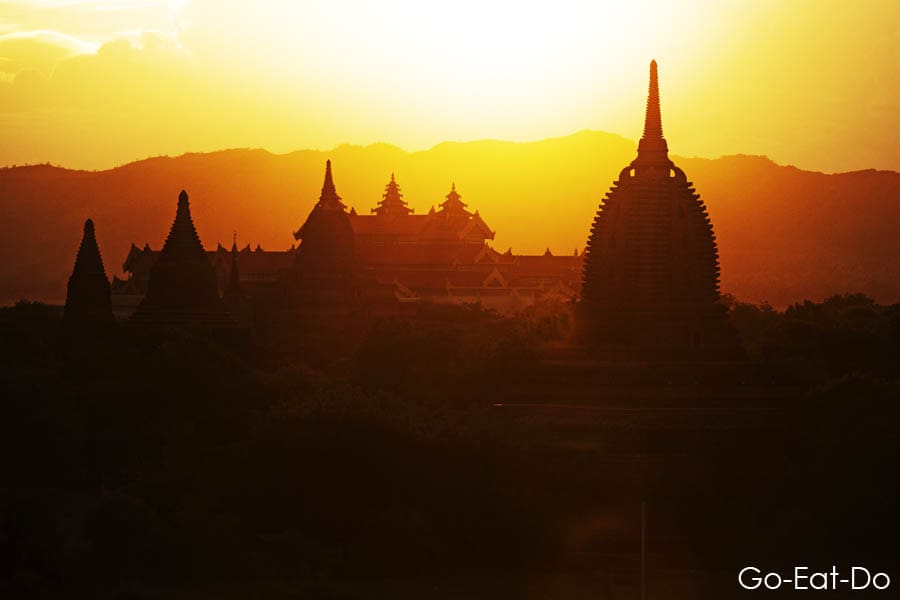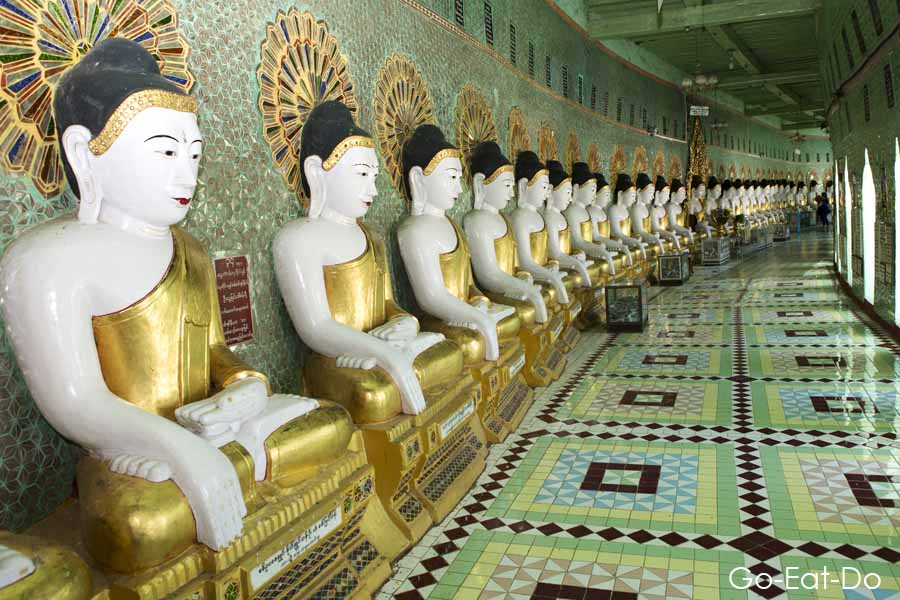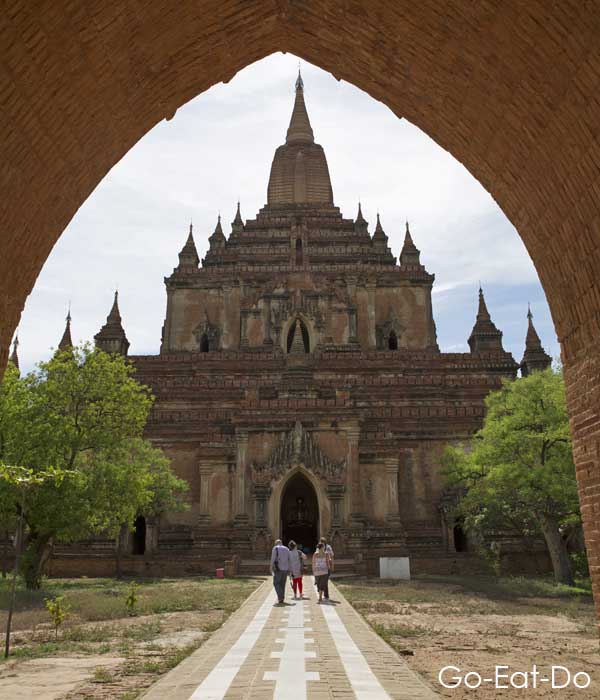Experienced photographer Stuart Forster discusses travel photography in Myanmar.
Myanmar is a country undergoing change and, for travel photographers, its cities and countryside offer a wealth of subject matter. Members of tribal groups are likely to captivate enthusiasts of people photography. The diversity of Buddhist temples means a wealth of material for architecture and heritage photography aficionados.
UK citizens travelling to Myanmar for tourism purposes can apply for an e-visa online. The application process is straightforward and rapid, saving you from the time-consuming process of sending your passport to the embassy.
International carriers, including Singapore Airlines, fly into Yangon International Airport, Myanmar’s main point of entry for air travellers. Over the past couple of years, travellers have flocked to explore a country that was once widely regarded as off limits, due to international protests against the human rights record of the military government.
Photographing police and military
It’s worth remembering that although the government has ameliorated its stance, members of the police and military do not take kindly to being photographed. To avoid problems it’s best to simply avoid pointing your camera in their direction.
Word is quickly spreading about the photogenic nature of the land and the warmth of its people. River cruises along the Ayeyarwady River, still sometimes known as the Irrawaddy River, are one of Myanmar’s more exclusive modes of transport. The boats’ decks provide observation platforms ideal for photographing life along the riverbanks and into the rolling hillsides above Mandalay.
The city was once the royal capital and has numerous sites of historic interest, including the palace complex and Kuthadow Pagoda, which locals say houses the world’s biggest book. The pages are sculpted.

Out during the golden hour
If you’re out and about in urban areas at dusk and dawn day then why not try talking to locals and make an effort to capture portraits in the soft light of the golden hour? The country is a great destination for street photography. Generally speaking, people are approachable and are often willing to be photographed.
Tourism has not yet reached the mass level that discourages locals from interacting with foreign visitors. It’s only in or around marketplaces that see regular tourist groups that you’ll experience people tenaciously asking for money when shots are taken.

Balloon flights in Bagan
Balloon flights over the dusty landscape around Bagan, which is the home to more than 3,000 temples, provide interesting opportunities to capture airborne images without the reflection of the porthole glass that you get in the cabin of an aircraft.
For photography enthusiasts with feet firmly on the ground, the balloons offer great subject matter as they drift over pagodas and semi-silhouetted stupas in the sunset.

Photographing in RAW and JPEGs
Remember to shoot RAW files (you can simultaneously shoot JPEGs too, so that you have easily accessible files for review). RAW files maximise the amount of data you have available to manipulate images once you are home. Capturing them will allow you to tweak the colour temperature of your files and alter the contrast and saturation of your images.
Most travellers file back to their hotels immediately after the sun has set over Bagan. It’s worth waiting around so you can photograph illuminated pagodas as night settles. Doing so immediately after darkness falls allows you to capture images while the sky is still blue. The so-called ‘blue hour’ lasts only a few minutes, so you need to work rapidly to capture your shots.
If you leave it much later then the sky will appear black and you won’t have any foreground detail. You can shoot handheld images by raising your ISO. For sharp architectural details, it’s worth carrying and using a tripod and keeping your ISO low (e.g. 100).
Remember to turn off image stabilisation when you’re photographing using long exposures. Otherwise, you run the risk of introducing shake into your shots.

Photography with a tripod
Additionally, if you want to capture Bagan’s ancient Buddhist heritage of then carry a lightweight tripod during the daytime too. Doing so will enable you to photograph details of the many Buddha historic statues and wall paintings within the temples.
Their shaded interiors may not give you much ambient light in which to photograph but do feel pleasantly cool. Likewise, using a tripod at Yangon’s Chaukhtatgyi Temple means you’ll be able to capture details sculpted into the feet of the vast reclining Buddha figure around which locals offer up prayers.
Remember, varying your perspective can be a great way of capturing interesting shots of people. Try placing your camera on the ground and photographing upwards. Using the live view mode that’s available on many cameras is a way of working around the fact you might not be able to look through the viewfinder.
Likewise, remember to look up when you’re inside buildings. Why not set a broad depth of field and try shooting directly upwards at ceilings? The results, for example in buildings utilising traditionally painted umbrellas as lampshades, can yield colourful results.
As the trickle of tourists visiting Myanmar develops into a torrent, change is likely. Longstanding traditions may be abandoned in modernisation. Now is as good a time as any to grab your camera and explore.
If you have experience of travel photography in Myanmar and want to share tips or ideas please feel welcome to leave a comment below.

Travel to Myanmar
Singapore Airlines flies four times daily from London Heathrow and daily from Manchester to Singapore for onward connections to Myanmar. Singapore Airlines and SilkAir, its regional sister carrier, jointly fly 16 times per week to Yangon, while a further two daily flights operate to Mandalay. For the latest promotional fares and to book, visit www.singaporeair.com.
Premier Holidays (www.premierholidays.co.uk; tel. 08444 937 531) offers tailor-made tours of Myanmar, providing opportunities to view highlights such as Inle Lake, Bagan, Yangon and Mandalay.
Further information
To find out more about the country’s attractions see the Tourism Myanmar website.
Photos illustrating this post are by Why Eye Photography.
Thanks for reading this post about travel photography in Myanmar. You may want to take a look at this article about inspirational travel photography in Canada.
If you enjoyed this post why not sign up for the free Go Eat Do newsletter? It’s a hassle-free way of getting links to posts on a monthly basis.
‘Like’ the Go Eat Do Facebook page to see more photos and content.




Justina Elumeze
March 15, 2017 at 11:48Your pictures are amazing! I love your photography tips and your post is really informative.
Stuart Forster
March 16, 2017 at 10:03Thank you Justina. There really is a wealth of photogenic subject matter in Myanmar.
Keri | Ladies What Travel
March 16, 2017 at 15:33Such wonderful images Stuart – and some useful advice!
Stuart Forster
March 16, 2017 at 15:41Hopefully the tips inspire travellers to use their cameras creatively.
Seline O'Mara
March 24, 2017 at 00:31Super suggestions. We are looking to book a tour of Myanmar and will be encompassing Bagan, Inle Lake, Yangon and Mandalay into our itinerary.
Stuart Forster
March 25, 2017 at 11:59It’s good to hear that this post proved of use to you.
Stuart Forster
March 30, 2017 at 13:16I’m glad to hear that the post has inspired you.
Myanmar travel
March 30, 2017 at 09:16I like your photos
Stuart Forster
March 30, 2017 at 13:16Thank you for your kind feedback.
Alex Bottomley
March 8, 2018 at 19:54Love these! Myanmar sounds an awesome place for photography.
Stuart Forster
March 9, 2018 at 08:47It is. The landscape is photogenic and the people did not shy from the camera.